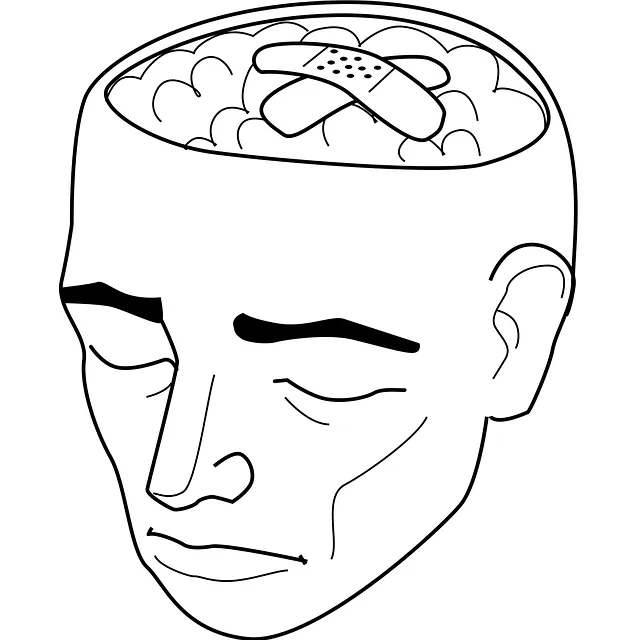The Kaiser Permanente Mental Health Access Center in Lakewood pioneered an advanced evaluation process for better diagnosis and personalized care, integrating specialist teams and cutting-edge assessment tools. They emphasize stigma reduction through public awareness campaigns and empathy-building strategies, with Crisis Intervention Guidance as a key component. As a crucial access center, Lakewood offers tailored therapies and acts as a treatment hub and referral point, leveraging AI algorithms and evidence-based practices for improved mental health outcomes.
Mental illness diagnosis accuracy is a critical aspect of patient care, and ongoing efforts are needed to ensure precise identification. This article explores various initiatives aimed at improving diagnostic practices, focusing on notable programs by Kaiser Permanente and Lakewood Center for Mental Health Access. We evaluate Kaiser Permanente’s robust mental health protocols, highlight Lakewood’s role in enhancing access to services, and discuss advanced diagnosis techniques alongside comprehensive training strategies. Furthermore, we emphasize the community support crucial for accurate mental health assessments.
- Evaluating Kaiser Permanente's Mental Health Protocols
- Enhancing Access: Lakewood Center's Role
- Advanced Diagnosis Techniques and Training
- Community Support for Accurate Assessment
Evaluating Kaiser Permanente's Mental Health Protocols

Kaiser Permanente, a leading healthcare provider, has implemented innovative mental health protocols at its Mental Health Access Center in Lakewood, aiming to enhance diagnosis accuracy and improve patient care. The center’s approach involves a comprehensive evaluation process that includes advanced assessment tools and an integrated team of specialists. This strategy ensures that every patient receives personalized attention, fostering a more accurate understanding of their mental health concerns.
By evaluating the effectiveness of these protocols, Kaiser Permanente can identify areas for improvement. The organization has recognized the importance of public awareness campaigns development and empathy-building strategies to combat stigma and promote early intervention. Crisis Intervention Guidance plays a pivotal role in these efforts, providing essential tools to both healthcare professionals and the community at large.
Enhancing Access: Lakewood Center's Role

Lakewood Center stands as a beacon of hope for improved mental health access within the Kaiser Permanente network. As one of its key initiatives, the center focuses on bridging the gap between individuals seeking mental health support and the specialized care they require. By serving as both a treatment hub and a referral point, Lakewood Center ensures that patients have easier access to comprehensive mental health services.
This center plays a pivotal role in promoting positive thinking and mood management through evidence-based practices. With a dedicated team of professionals, it offers a range of therapies tailored to individual needs, fostering an environment conducive to healing. Moreover, the center’s strategic location within Kaiser Permanente allows for seamless integration with primary care services, facilitating early intervention and continuous support for improved mental health outcomes.
Advanced Diagnosis Techniques and Training

At the Kaiser Permanente Mental Health Access Center Lakewood, innovative diagnosis techniques are being pioneered to enhance accuracy and care. The center leverages advanced tools such as artificial intelligence (AI) algorithms that analyze patient data from various sources, including medical records, genetic information, and self-reported symptoms, to provide more precise evaluations. This technology not only speeds up the diagnostic process but also improves its reliability, especially for complex mental health conditions.
In addition to these advanced techniques, extensive training programs are conducted regularly to equip healthcare professionals with the latest knowledge and skills. The Mental Health Policy Analysis and Advocacy initiative focuses on fostering a comprehensive understanding of mental illness, while Trauma Support Services aim to address the unique challenges faced by individuals who have experienced trauma. These efforts complement each other, ensuring that patients receive holistic care that not only accurately diagnoses their conditions but also promotes Inner Strength Development for long-term well-being.
Community Support for Accurate Assessment

Community support plays a pivotal role in enhancing the accuracy of mental illness diagnoses, especially in areas like the Kaiser Permanente Mental Health Access Center Lakewood. These centers serve as hubs for comprehensive care, where individuals can access various services tailored to their unique needs. By fostering an environment that encourages open dialogue and collaboration between patients, healthcare professionals, and community organizations, accurate assessments become more feasible.
The integration of conflict resolution techniques and self-awareness exercises within these communities empowers individuals to better understand and communicate their experiences. This, in turn, aids mental health professionals in interpreting symptoms accurately. Moreover, by promoting awareness about depression prevention strategies, these centers equip individuals with tools to recognize early warning signs, leading to timely interventions and more precise diagnoses.
In conclusion, improving mental illness diagnosis accuracy involves a multi-faceted approach. Evaluating and enhancing protocols at institutions like Kaiser Permanente, along with community support and advanced techniques, play crucial roles in ensuring accurate assessments. The efforts of Lakewood Center exemplify the importance of accessible, specialized centers in fostering better mental health outcomes. By combining robust training with community engagement, we can navigate the complex landscape of mental health diagnosis, ultimately revolutionizing care for folks facing these challenges.






